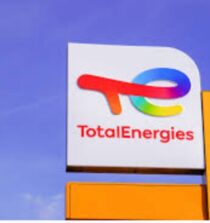Oil and gas companies operating in Nigeria got a total of 12,383 service permits in 2018 for the services rendered in the sector. The Punch has reported.
The Department of Petroleum Resources (DPR) said the service permits were issued in three categories.
In a document detailing some of its achievements in 2018, which was obtained by our correspondent from the agency in Abuja on Friday, the DPR outlined the categories as general, major and special.
The agency said, “DPR granted a total of 12,383 oil and gas industry service permits in 2018. The permits include 2,730 in the general category; 5,963 in the major category; and 3,690 in the special category.”
The DPR has the statutory responsibility of ensuring compliance with petroleum laws, regulations and guidelines in the oil and gas industry.
The discharge of these responsibilities involved monitoring of operations at drilling sites, production wells, production platforms and flow stations, crude oil export terminals, refineries, storage depots, pump stations and retail outlets.
It also discharges these responsibilities by monitoring any other location where petroleum is either stored or sold and all pipelines carrying crude oil, natural gas and petroleum products while carrying out the additional functions that include the processing of industry applications for leases, licences and permits.
On the basis of the legal framework for the service permits, the agency stated that any service company that operated in the oil and gas sector without a service permit would be in contravention of the provision of the DPR regulation.
In its guidelines for oil and gas industry service companies permit, the DPR said a company might apply for and obtain permits in more than one category provided it was registered by Corporate Affairs Commission (CAC) and had the appropriate legal status as well as the competencies, capabilities or equipment to carry out the jobs.
It said the guidelines were issued pursuant to Section 8, subsection 1(a) and 9, subsection 1(a) & (h) of the Petroleum (Drilling and Production) Amendment Regulations 1988, which empowered the director of petroleum resources to formulate regulations/guidelines from time to time for the smooth and safe operations in the oil and gas industry.
It added that section 60A of the Petroleum (Drilling and Production) Amendment Regulations 1988, provided that no company shall render or be engaged to render technical services to the oil industry without first being registered and issued a permit to carry out such services by the director of petroleum.
It was also gathered that effective January 1, 2012, all permits issued pursuant to these guidelines were meant to expire on the anniversary of the date of issue.
Recently, The PUNCH exclusively reported that the DPR collected a total revenue of N612.73 billion for services rendered in the first six months of 2018.
The report revealed that the N612.73 billion revenue represented 63 per cent of the agency’s annual target of N972.19 billion.
In the report, which was obtained by our correspondent from the agency in Abuja, the organisation said, “DPR achieved N612,726,813,186.23 revenue collection for the half year ending June 2018 from the annual target of N972,192,813,409.50, translating to 63 per cent revenue performance.”
It also explained that its Fiscal Payment Administration System, an enterprise web application for the management of the life cycle of fiscal payments, which was inaugurated last year, would further boost DPR’s revenue collection.
Further analysis of DPR’s latest report showed that in 2018, the oil sector regulator granted 26 Permits to Survey for oil and gas pipelines, 11 oil and gas pipelines licences and two approvals to introduce hydrocarbon for two pipelines (one gas and the other oil).
The agency said it granted 12 regulatory approvals including two operating licences for gas projects during the review period, adding that this was in line with government’s aspiration to increase gas availability.







